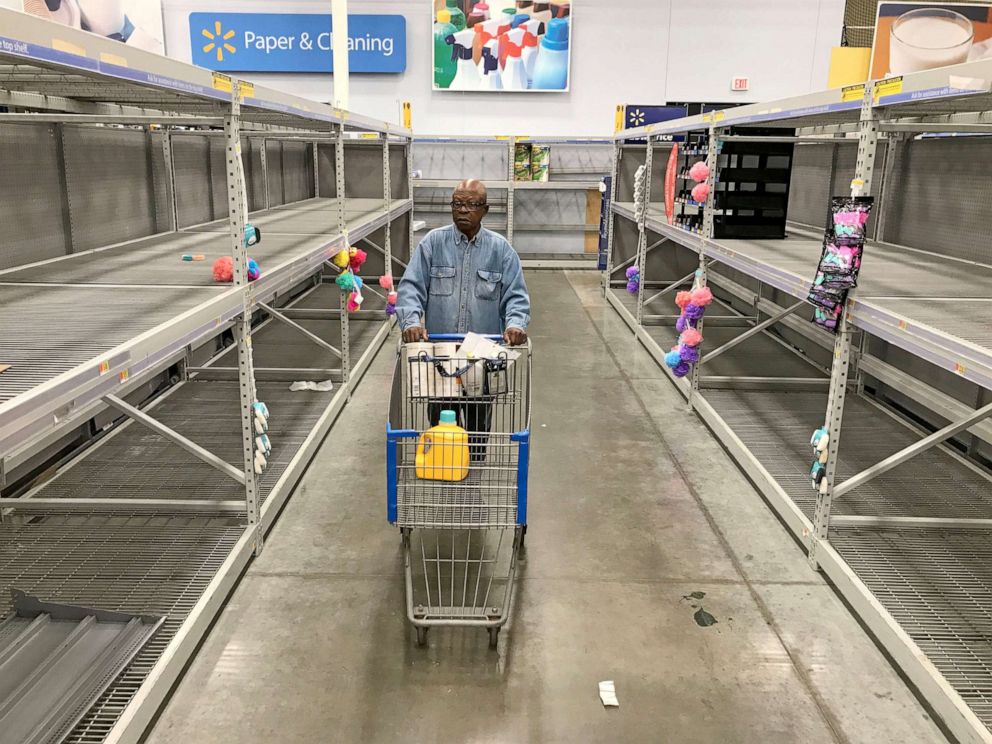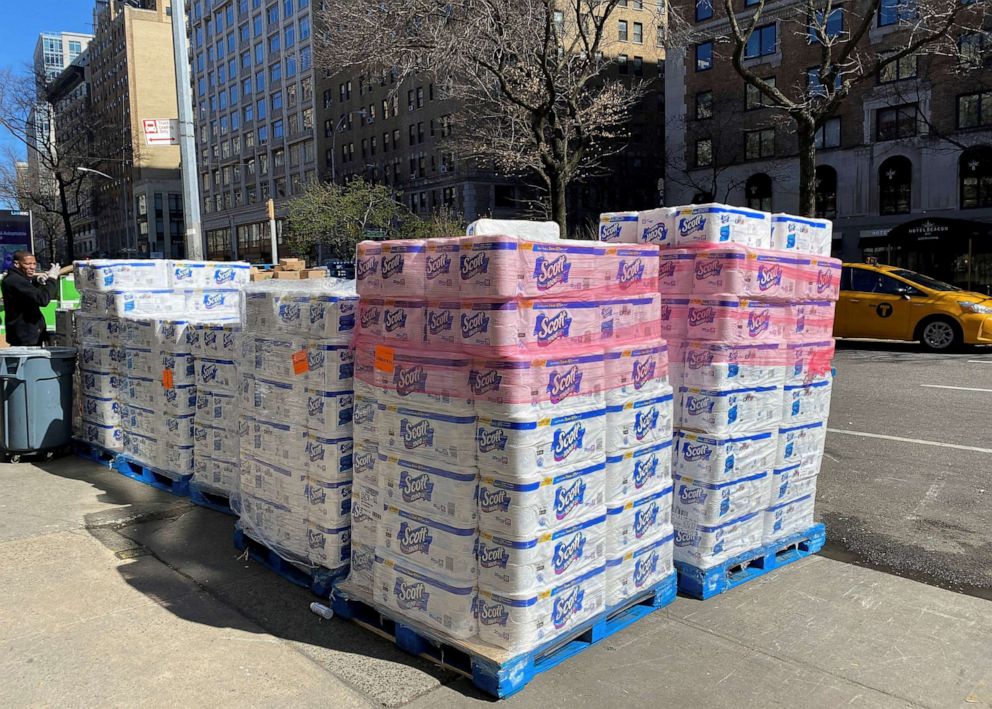Stores are restocking, so should you stock up?
From pantry items to medication to toilet paper, here's what you need to know.
As Americans adjust to daily life amid the coronavirus health emergency, grocers and retailers have assured shoppers that supply will meet demand.
Experts recommend against panic buying, but they do have tips on which essentials to keep on hand, how much you need and the safest way to procure them.

Pantry staples, produce that can be frozen
"All homes should be prepared with -- but not hoard or stockpile -- a sufficient amount of key household items and groceries in case they need to stay home for a period of time," Dr. Chloë E. Nunneley, a resident in the ABC News medical unit, explained.
"Your pantry should have a two- to four-week supply of a variety of foods you normally eat, including nonperishable items like grains, shelf-stable dairy and canned, jarred or frozen foods," she suggested. "Fresh produce is good to include, keeping in mind that many fresh foods can also be frozen."
Prescription medications, over-the-counter products
"If you take prescription medications, obtaining a new 30-day supply will help prevent running out of medication and overwhelming busy pharmacies later on," Nunneley said. "Over-the-counter medications like acetaminophen or ibuprofen are useful to have in case you become sick."
Avoiding crowded stores
While it's great to be prepared, another key component amid the current outbreak is to mitigate contact with other people so as to not transmit COVID-19.
"Keep in mind that we are preparing in order to refrain from going to the store," Nunneley added. "Our water supply shouldn't be affected" so most people shouldn't stockpile bottled water.
'No concern about running out of food'
The National Grocers Association, which includes more than 8,500 U.S. stores, said, "There is absolutely no concern about running out of food."
NGA president and CEO Greg Ferrara said independent grocers are helping larger chains meet demand during this time, and that grocery stores are being restocked at unprecedented speeds.

"The supply chain is fully operational, and supplies are flowing 24/7," Ferrara explained. "Unfortunately, the demand in many markets has been unprecedented, and the supply chain is working to catch up, but stores are being restocked with fresh produce, meats, breads, canned goods -- you name it -- on a daily basis."
Products that sold out quickly, such as toilet paper and hand sanitizer and disinfectant wipes, "may be more limited in terms of availability but are flowing through the supply chain," Ferrara added. "While our nation is facing a new crisis that we have not previously faced, it’s important for us all to remain calm."
Target, Kroger and Publix all told ABC News they're working rapidly to replenish store shelves. In the meantime, some stores have set limits on the number of harder-to-find items each individual can purchase.
Several stores also told ABC News that ample supplies exist in warehouses or are being produced in factories and that it's more a matter of getting them delivered to retailers.
Deliveries that used to happen twice a week are in some cases "being made once to twice a day," said Rebecca Jarvis, ABC News' chief business, technology and economics correspondent.




